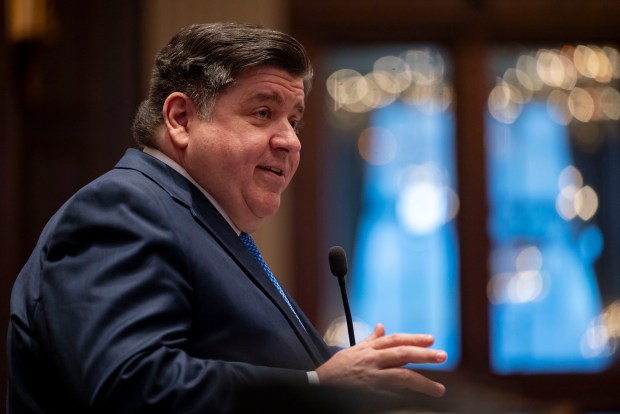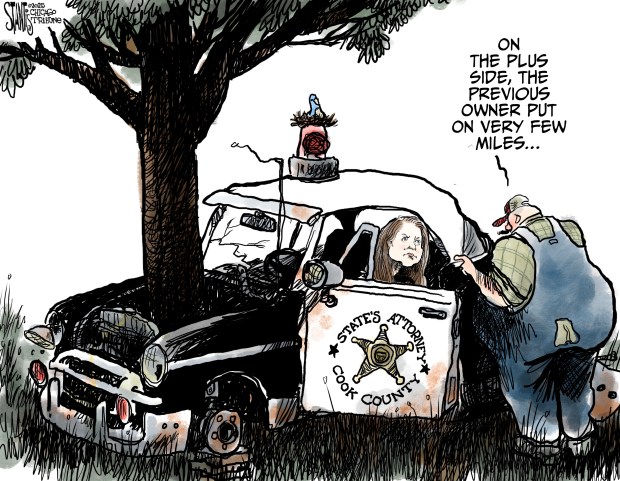Grocery sales taxes are looking like toast. Only 13 states still levy them and even some of that number, such as Kansas, are either reducing them or phasing them out. They’re now widely seen as unacceptably regressive, even by sales tax standards. And the political downside of taxing such staples as milk or eggs is significant.
Add in spiraling food costs and grocery taxes look even worse. Prices for food like carrots and butter saw double-digit increases in the aftermath of the pandemic and while there are signs that food companies are no longer attempting such increases, few expect basket prices to fall significantly. Compared with much of Europe, U.S. prices at the supermarket are astronomical. You now can pay as much as $8 for a simple loaf of locally produced, and inaccurately named, “peasant bread” in a Chicago supermarket, we recently discovered.
So we’re sympathetic with Gov. J.B. Pritzker’s desire, as expressed late last month in his budget address, to nix Illinois’ 1% levy on these staples. It’s not a lot on an individuated basis, of course. But it’s a tax that does not need to be there, especially since its absence might contribute in some small way to motivating people to cook healthy meals at home rather than stopping at the local fast-food outlet.
But there’s a wrinkle here. The revenue from that tax goes directly to municipalities, not state coffers. Pritzker thus has the power to nix the tax without having to worry about a loss of cash flowing into his own budget. And that explains why various municipalities have organized in protest, claiming that the loss of said revenue will result in them having to cut services or hike their own taxes. According to the Illinois Municipal League, the bite out of the budget of such Chicago suburbs as Wheaton would be over $2 million, the likes of Naperville would be hit by over $3 million and Chicago itself could lose as much as $80 million.
In predictive response, Pritzker said localities are free to levy their own grocery taxes to restore this revenue. (That’s the setup in a few other states.) But that scenario, of course, means the municipalities would take the political hit themselves. And they’d risk consumers choosing to shop in the next suburb over where they could buy their yogurt tax-free.
Granted, no municipality fell apart when Pritzker suspended this tax during COVID-19, but there were federal relief funds knocking around at that time. And when you look at the fiscal problems present in suburbs like Evanston, which has little or no money to pay for replacements to aging city facilities, you can understand why the municipalities are trying to argue that the small individual savings are insignificant compared with their own cumulative losses.
You could, of course, argue that about any potential tax cut. But officials like Rockford Mayor Tom McNamara already were complaining about the reductions in the so-called Local Government Distributive Fund. “Since 2011,” McNamara wrote recently in the Rockford Register-Star, “the state has unilaterally decreased the local share of LGDF by almost 40%, so that in State Fiscal Year 2023, the local government share is only 6.16% of individual income tax collections and 6.845% of corporate income tax collections.”
Those are real concerns that Pritzker and his team have to address. But we’d rather see beefier contributions coming to that fund to ensure municipal stability — a big deal and a growing issue — rather than maintaining this unpopular and regressive tax. If the state has to make its own small trims to do so, so be it. After all, Pritzker is the one removing the local revenue from the supermarket checkouts.
But the grocery tax? Time to stop paying the taxman just to fill our bellies.




